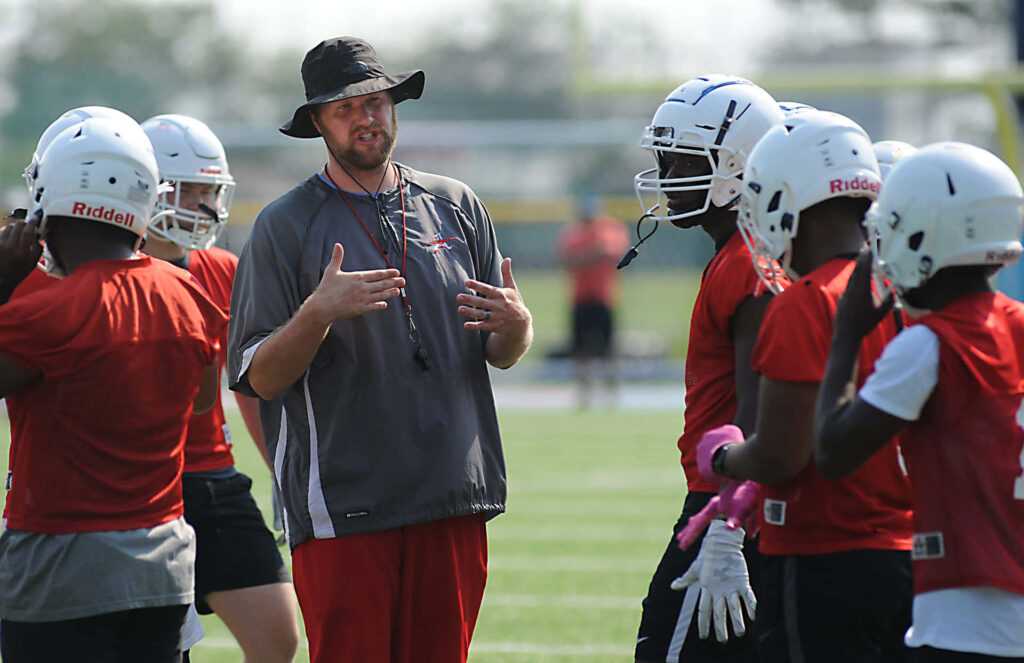Coaching Football 101
Coaching in the National Football League (NFL) is an intricate blend of strategy, leadership, and adaptability. It requires a deep understanding of the game, excellent communication skills, and the ability to motivate and manage a diverse group of athletes. Whether you are an aspiring coach or simply a football enthusiast, understanding the fundamentals of NFL coaching can provide a new appreciation for the complexities of the game. This guide, “Coaching Football 101,” will delve into the core aspects of coaching in the NFL.


Effective coaching is a cornerstone of personal and professional development, fostering significant growth and improvement. It involves providing comprehensive guidance, tailored support, and constructive feedback to individuals or teams. By setting clear goals and offering strategic advice, effective coaching helps identify strengths and areas for improvement. Through regular, meaningful interactions, coaches empower their clients to overcome challenges, build skills, and enhance performance.
Subscribe for more coaching tips and insights to elevate your game and reach new heights!
1. Understanding the Game
At its core, football is a game of strategy and execution. An NFL coach must have a comprehensive understanding of the game’s rules, strategies, and nuances. This includes:
- Offensive and Defensive Schemes: Coaches must be well-versed in various offensive and defensive schemes. Offensively, this includes understanding formations like the spread, pro-style, and West Coast offenses. Defensively, knowledge of schemes such as the 4-3, 3-4, and Cover 2 is crucial.
- Special Teams: Often overlooked, special teams play a significant role in field position and scoring opportunities. Coaches need to strategize kickoffs, punts, field goals, and returns effectively.
2. Building a Team
Successful NFL coaching goes beyond Xs and Os; it involves building a cohesive and motivated team. This aspect includes:
- Player Evaluation: Coaches need to assess talent accurately. This involves scouting college players, evaluating free agents, and understanding each player’s strengths and weaknesses.
- Team Chemistry: Building a positive team culture is vital. Coaches must foster an environment where players trust and support each other, which can be achieved through team-building activities and clear communication.
- Leadership: Coaches are leaders and role models. They must inspire players to perform at their best, both on and off the field. This involves setting a good example, being approachable, and maintaining a positive attitude.
3. Game Preparation
Preparation is key to success in the NFL. Coaches must meticulously plan for each game by:
- Film Study: Analyzing game footage is crucial for understanding opponents’ tendencies and developing game plans. Coaches and players spend hours breaking down film to gain a competitive edge.
- Practice: Effective practice sessions are structured and purposeful. Coaches must design drills that replicate game scenarios, ensuring players are well-prepared for any situation they might face.
- Game Planning: Crafting a game plan involves developing strategies tailored to exploit opponents’ weaknesses and maximize the team’s strengths. This includes offensive play-calling, defensive adjustments, and special teams strategies.
4. In-Game Adjustments
During a game, coaches must be able to think on their feet and make real-time adjustments. This requires:
- Situational Awareness: Understanding the game’s flow and making decisions based on the current situation is critical. This includes managing the clock, deciding when to go for it on fourth down, and making substitutions.
- Communication: Coaches must effectively communicate with players and assistant coaches. This includes relaying plays, making adjustments, and providing feedback.
5. Post-Game Analysis
After each game, coaches need to review performance and identify areas for improvement. This process involves:
- Film Review: Analyzing game film to evaluate what worked and what didn’t. This helps in refining strategies and correcting mistakes.
- Player Feedback: Providing constructive feedback to players is essential for development. This involves highlighting both positive performances and areas needing improvement.
6. Continuous Learning
The NFL is a constantly evolving league, and successful coaches must stay ahead of the curve by:
- Staying Informed: Keeping up with new trends, strategies, and technologies in football is vital. Attending coaching clinics, networking with other coaches, and staying current with league developments are all part of this process.
- Self-Reflection: Great coaches continually assess their performance and seek ways to improve. This involves being open to feedback and willing to adapt their coaching style.
Coaching in the NFL is a challenging but rewarding endeavor. It requires a deep understanding of the game, the ability to build and lead a team, meticulous preparation, quick decision-making, and a commitment to continuous learning. Whether you’re aspiring to coach in the NFL or simply want to gain a deeper appreciation for the game, understanding these core principles is essential. As the saying goes, “A good coach can change a game, but a great coach can change a life.” In the high-stakes world of the NFL, great coaches not only change games but also leave lasting legacies.
For more on this topic, check out our How Coaching Changes Influence Betting Lines in College Football page.
QUESTIONS?
Feel free to reach out with your inquiries, and we’ll provide the answers and support you need. Your curiosity is always welcome.